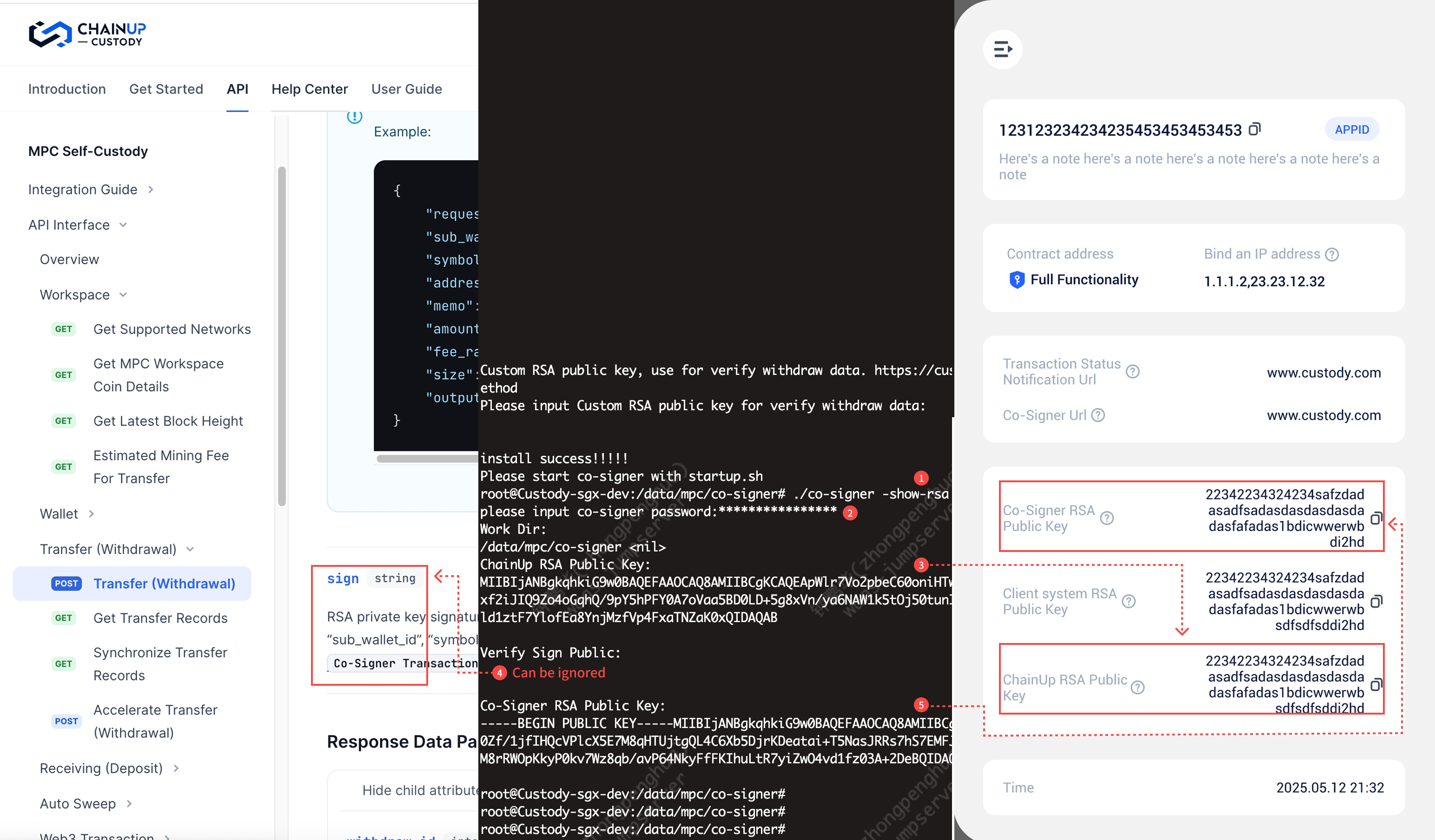Co-Signer Transaction Signature Verification
Co-Signer provides a more secure dual-verification feature for transactions.
In addition to the Co-Signer callback mechanism, Clients can simultaneously pass the sign field when initiating a transaction. Co-Signer will additionally verify whether the sign is legal.
Specific signature rules are as follows
-
Sign the parameters in the format
k1=v1&k2=v2, and sort k inASCII ascending order; parameters with empty values are not included in the signature. -
The digits involved in the signature must
not end with the digit 0, for example, 1.0001000, please use 1.0001 for the signature. -
After concatenating the parameters, convert to lowercase and then use MD5 encryption. For example, if the parameters before encryption are
address_to=0x5edc9177997bf6b4db559a5c184051858b3b3704&amount=1.0001, the MD5 encryption result isc10c47a46b616526e739985ce1c7f15d. -
Use the
SHA256 algorithmto sign the MD5 data with RSA, and then encode it withBASE64to obtain the final signature data.
Setting Verify Public Key

Was this page helpful?